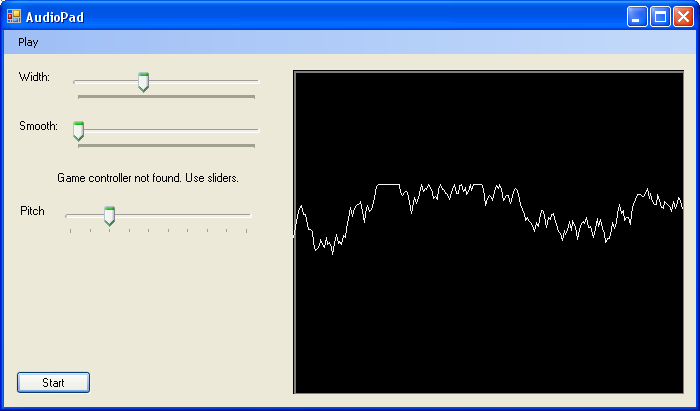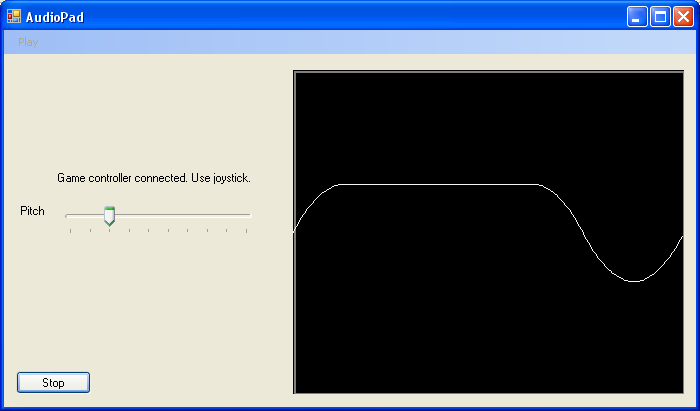After experimentation, I came up with a program that plays a tone with changing timbre. While it is playing, you can change the pulse-width and "smoothness", creating interesting sounds. Quickly changing pulse-width creates the illusion of motion. The "smoothness" parameter goes from sine wave-like to a square wave (approximated by quadratics). As another experiment, I added a joystick interface - if you plug in a game controller and open the program, you can use the joystick to control these parameters. I encourage the reader to think of more audio effects and interfaces.


I wrote a custom control plotting the waveform, which was useful. The program also contains my implementations of waves such as square, triangle, sawtooth, white noise, red noise.
As an aside, delegates in C# are very convenient, allowing you to easily store and pass refrences to methods. What is great is that there is so little code involved. Here's an example from my sound class:
// Takes integer index, returns double between -1 and 1
delegate double SoundDelegate(int i);
...
double timeScale = frequency * 2 * Math.PI / (double) 44100;
SoundDelegate fn = delegate(int i)
{
return Math.Sin(i * timeScale);
};
return create16bit_sound(fn);Here is a sample. The real thing sounds even better, the rate of updating was limited in the process of recording this sample.
Download (Windows, .NET 2.0, DirectX9) Joystick is optional
Source GPLv3
If you want to write DirectC audio in C#,the following may help: To get the Managed DirectX dlls, I downloaded the "DirectX 9.0c Redistributable for Software Developers", ran it, and opened the resulting ManagedDx.cab file. Also, using these in Visual Studio 2005, I would get an exception upon starting the program. One can disable this false excption in Debug->Exceptions->Managed Debugging Assistants, uncheck LoaderLock.